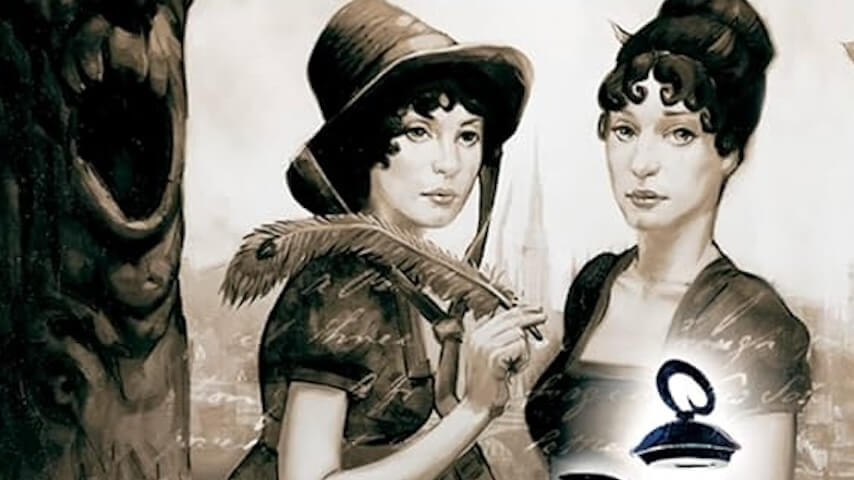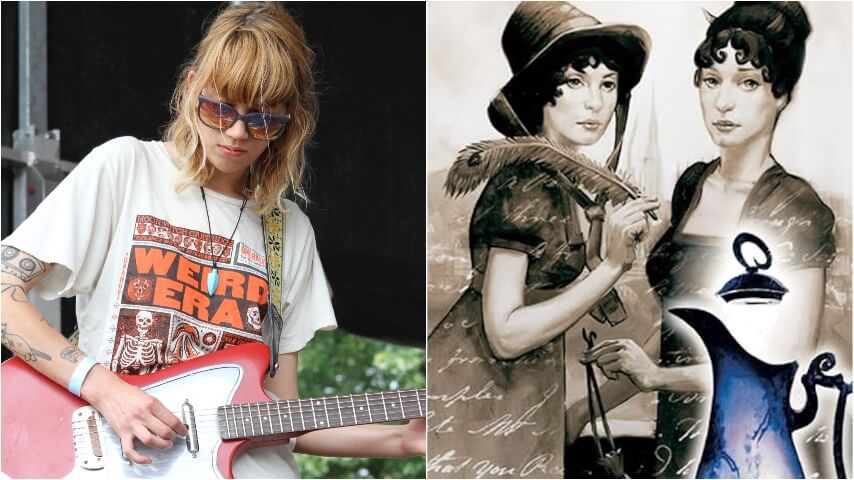Our latest Staff Picks come from TV Editor Tim Lowery and Staff Writer Mary Kate Carr, who both find themselves indulging in some nostalgia this month.
If you don’t know—or remember—this Brooklyn band, there’s a chance you know some of its members. Kevin Morby has gone on to be something of a singer-songwriter institution, kicking off his (as of this writing) impressive seven-solo-album run with 2013’s phenomenal, Dylan-nodding Harlem River and playing bass in the psych-tingled folk outfit Woods until that same year; Cassie Ramone, The Babies’ other singer-guitarist, led Vivian Girls, a back-to-basics group that rightfully became something of a scene and press darling in the late 2000s, and has lent her distinct illustrating style to the cover art of some great records; and drummer Justin Sullivan can be found in two very different L.A.-based projects: behind the kit in Flat Worms, a killer post-punk trio, and as a frontman singing upbeat, lovelorn-sprinkled songs in his own project, Night Shop. (In The Babies’ final iteration, they were rounded out by bassist Brian Schleyer.)
What stands out, to me, though is how unique The Babies feel from all of those bands—especially considering that the whole charm and intention of the project was to create simple, fun-to-play songs as a sort of palate cleanser to the pressures that come from being in buzzy groups like Vivian Girls and Woods. Over the course of their short run, The Babies released two LPs (2011’s lo-fi, self-titled debut, and 2012’s more produced-sounding Our House On The Hill), as well as a smattering of ace 7-inches, all the while never losing the energetic, in-the-practice-space magic of “Meet Me In The City” and “All Things Come To Pass,” the first two songs Morby and Ramone worked on together, per Kevin Morby’s Fam Club Substack. (That former one, with Morby’s cracked voice, that two-chord swagger, and that undeniable chorus, might just be my most-played track of the 2010s.) The pair’s occasional back-and-forth vocals were not unlike The Vaselines but still felt like their own, confident thing, and even amidst a sea of garage-rock bands of that era (many of whose whole M.O. was making “simple, fun-to-play songs”), The Babies felt different, cooking up catchy, strummy cuts about the highs and lows of being young and in a big city that hit home back when I was young(ish) and in said big city. To quote “Alligator,” a standout from their last LP, ”Life is funny / Life’s a laugh / Life is lonely / It’s drag.” Come to think of it, they kind of hit home now, too. [Tim Lowery]
Sorcery & Cecelia: Or The Enchanted Chocolate Pot

Sorcery & Cecelia: Or The Enchanted Chocolate Pot cover art (Image: Clarion Books)
It’s already been established that when autumn rolls around, I like to reach for a comfort book. Dark Academia is good for a spooky back-to-school vibe, but this time of year I also like a good Fantasy Of Manners for something magical but not scary. There are some great recent ones (Heather Fawcett’s Emily Wilde’s Encyclopaedia Of Faeries or India Holton’s The League Of Gentlewomen Witches are both delightful and part of really fun series). But the one I return to time and again is Sorcery & Cecelia: Or The Enchanted Chocolate Pot by Caroline Stevermer and Patricia C. Wrede.
Sorcery & Cecelia is about two cousins, Kate and Cecy, who live in a version of Regency England where magic is an accepted and respected form of academic study. Kate is sent to London for the season with her sister, while Cecy remains behind in their hometown in the countryside. The girls exchange letters keeping each other up-to-date on their latest adventures, and find themselves increasingly drawn into a magical conspiracy involving the “mysterious Marquis” and a crucially important enchanted chocolate pot that serves as the fulcrum of the tale.
Bridgerton has helped extend the delight of Regency romances to wider audiences, so it feels like a perfect time to revisit this 1988 cult classic. (No “spice” in this one, though, romance fans.) The time period is a perfect setting for this story; alongside the investigation of a dastardly murder plot, there’s also the comical social demands of the ton and picturesque Austenian country outings. The addition of magic to this landscape adds more humor, but it’s the voices of Kate and Cecy that are the most refreshingly funny part of the series. They’re such delightful heroines, and even though we technically never get to see them actually interact in person, their exchanges are so comfortable and lived-in that we immediately understand their deeply loyal, caring, mischievous dynamic.
What fascinated me most about Sorcery & Cecelia when I was younger was the epistolary nature of it. The intrigue is not just that the entire novel consists of letters between Cecy and Kate, though that was something fun I’d never encountered before I picked this book up. At the back of my copy, Stevermer and Wrede explained how they wrote the entire book by trading letters back and forth; they had a general outline of plot points they needed to hit, but otherwise, the contents of each letter were a total surprise to whomever was receiving the latest letter. As a kid, I had no idea a book could be written in such a way! It opened my eyes to this entirely different process, a way of writing that’s fun and collaborative and exciting, rather than the isolated and academic vision of a “Published Author” that I had in my head. Learning how it was written was the cherry on top for my enjoyment of the book, but trust me, Sorcery & Cecelia is a treat all on its own. [Mary Kate Carr]


